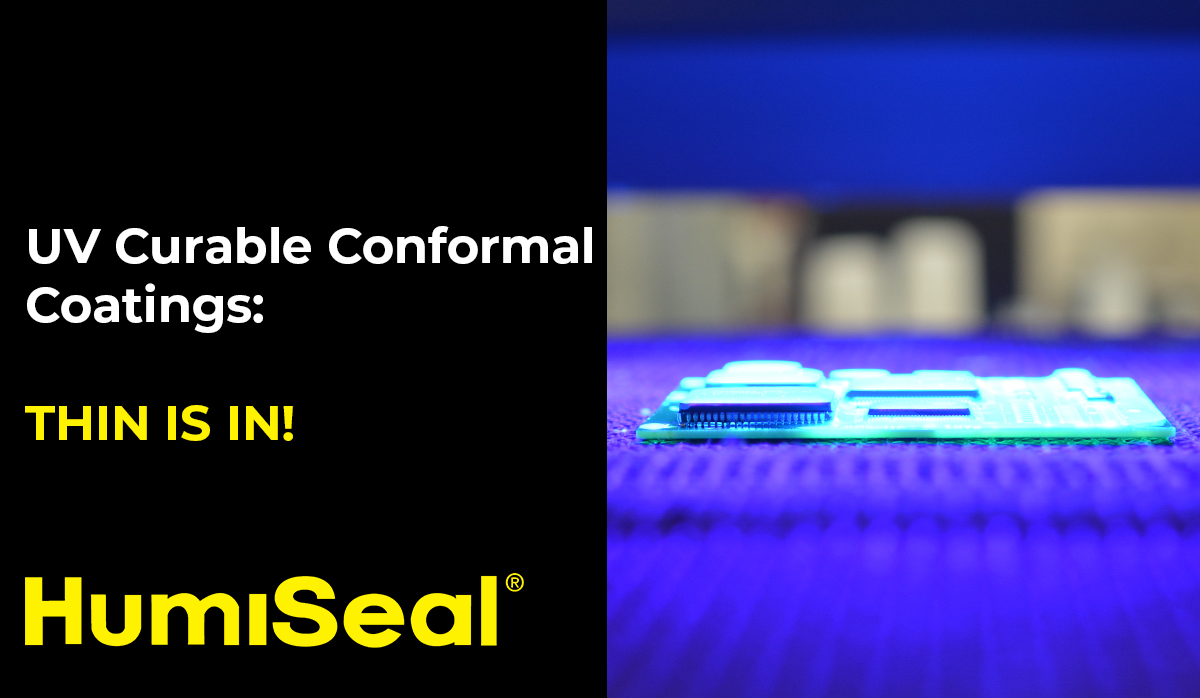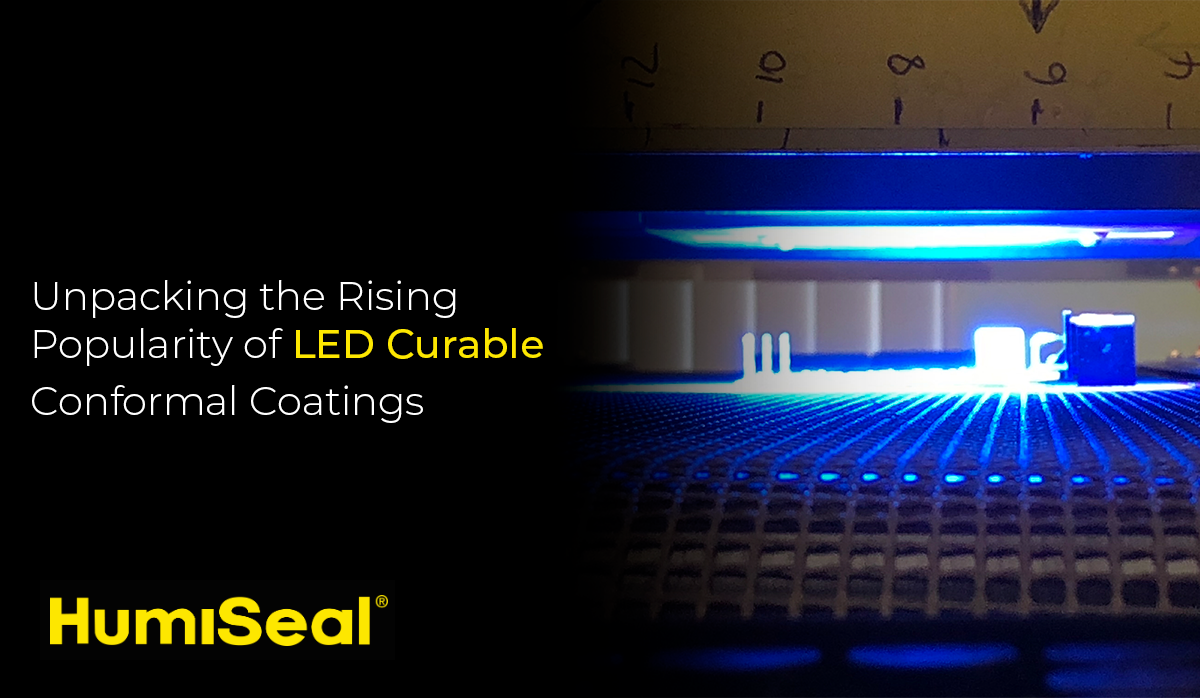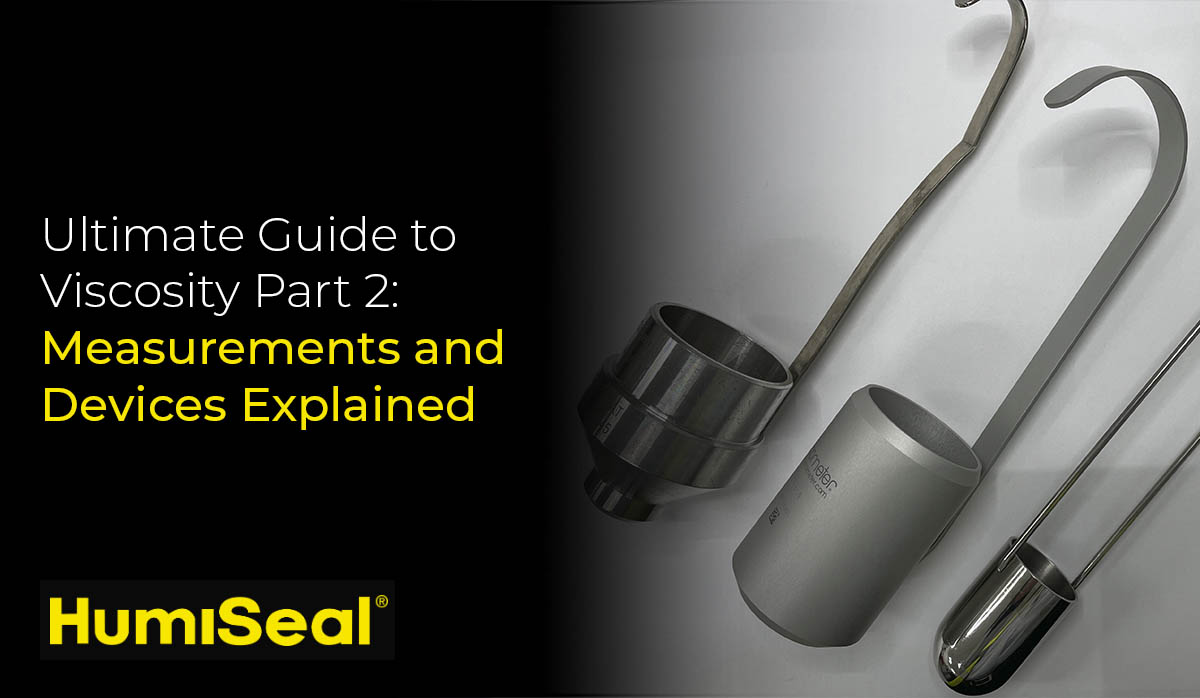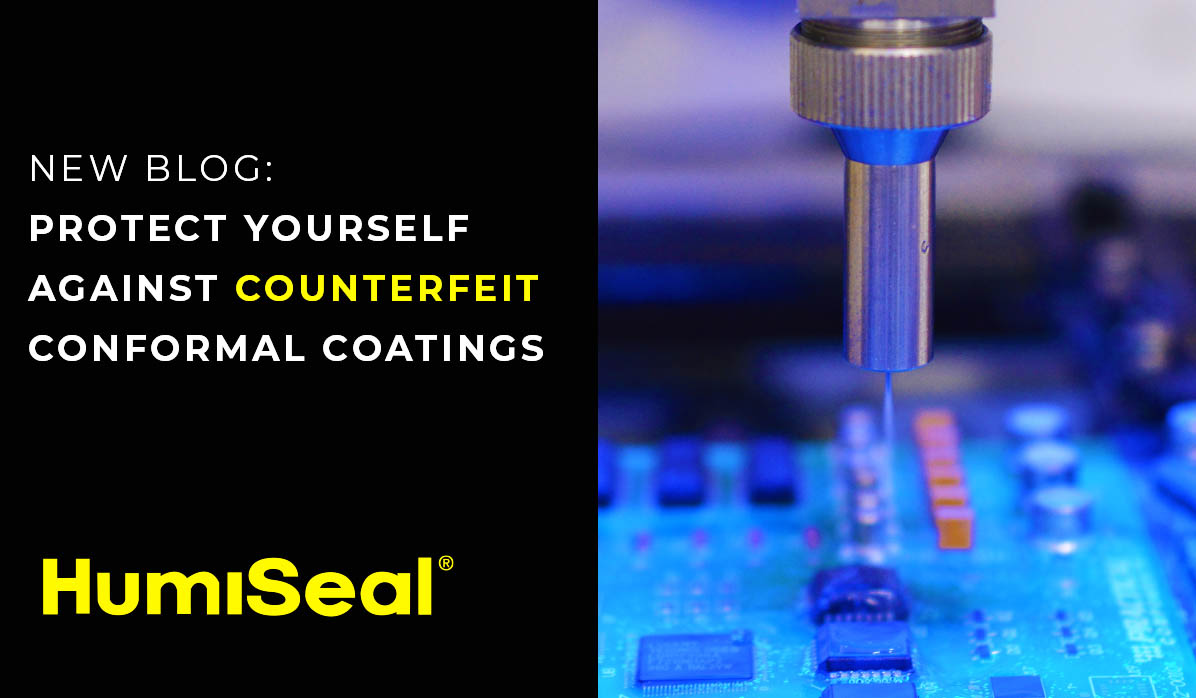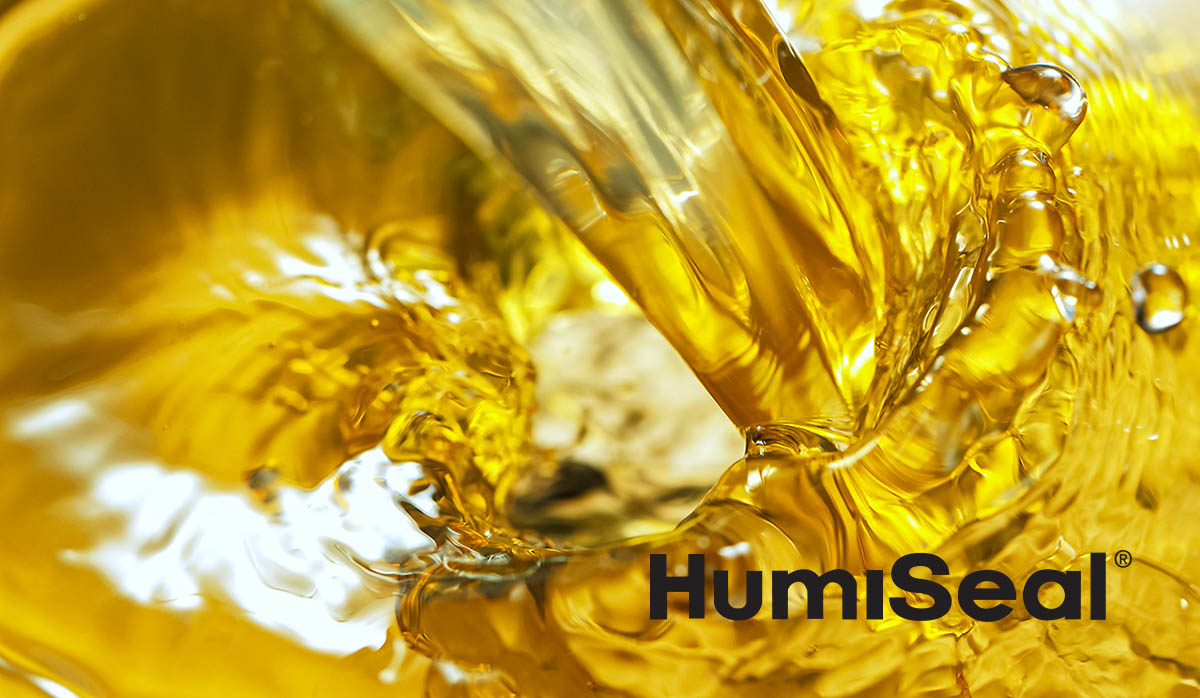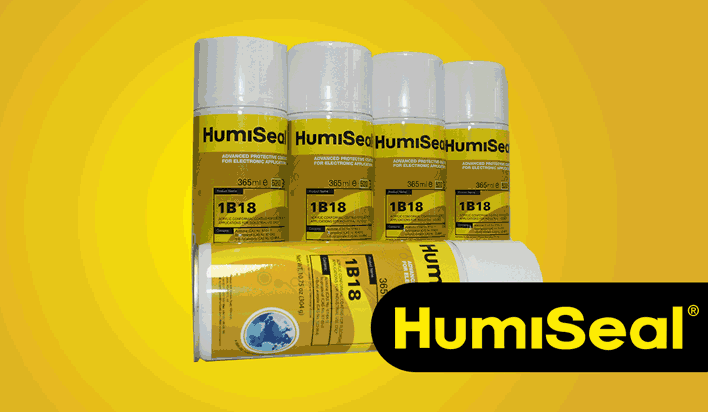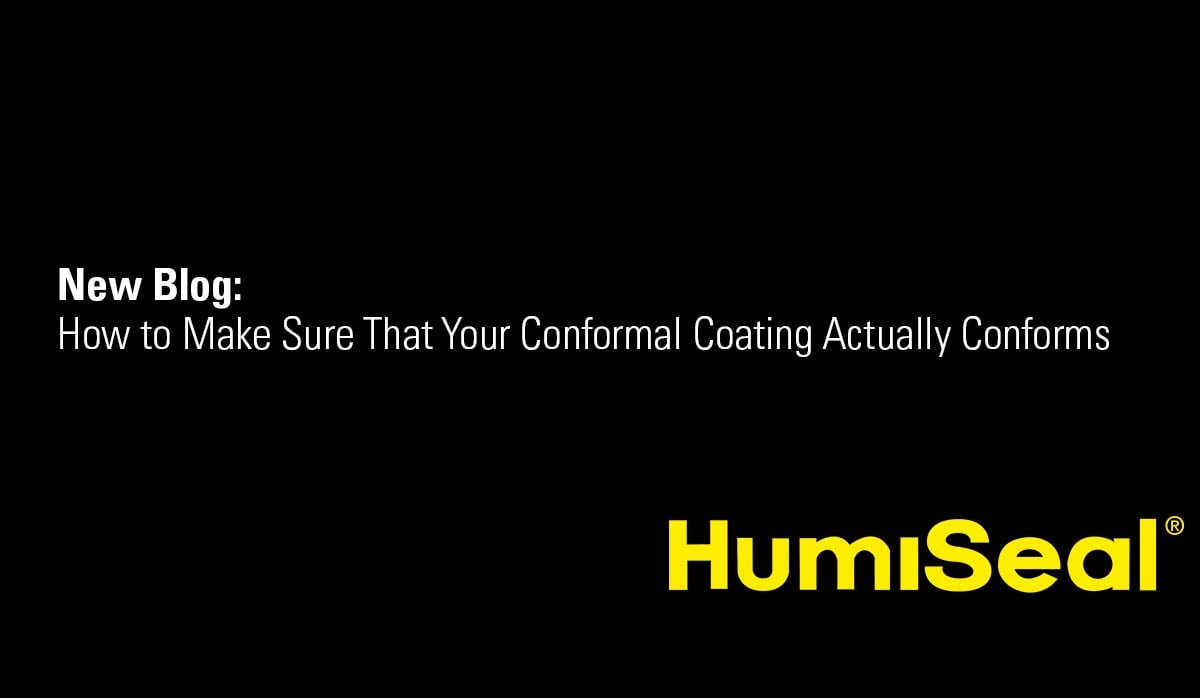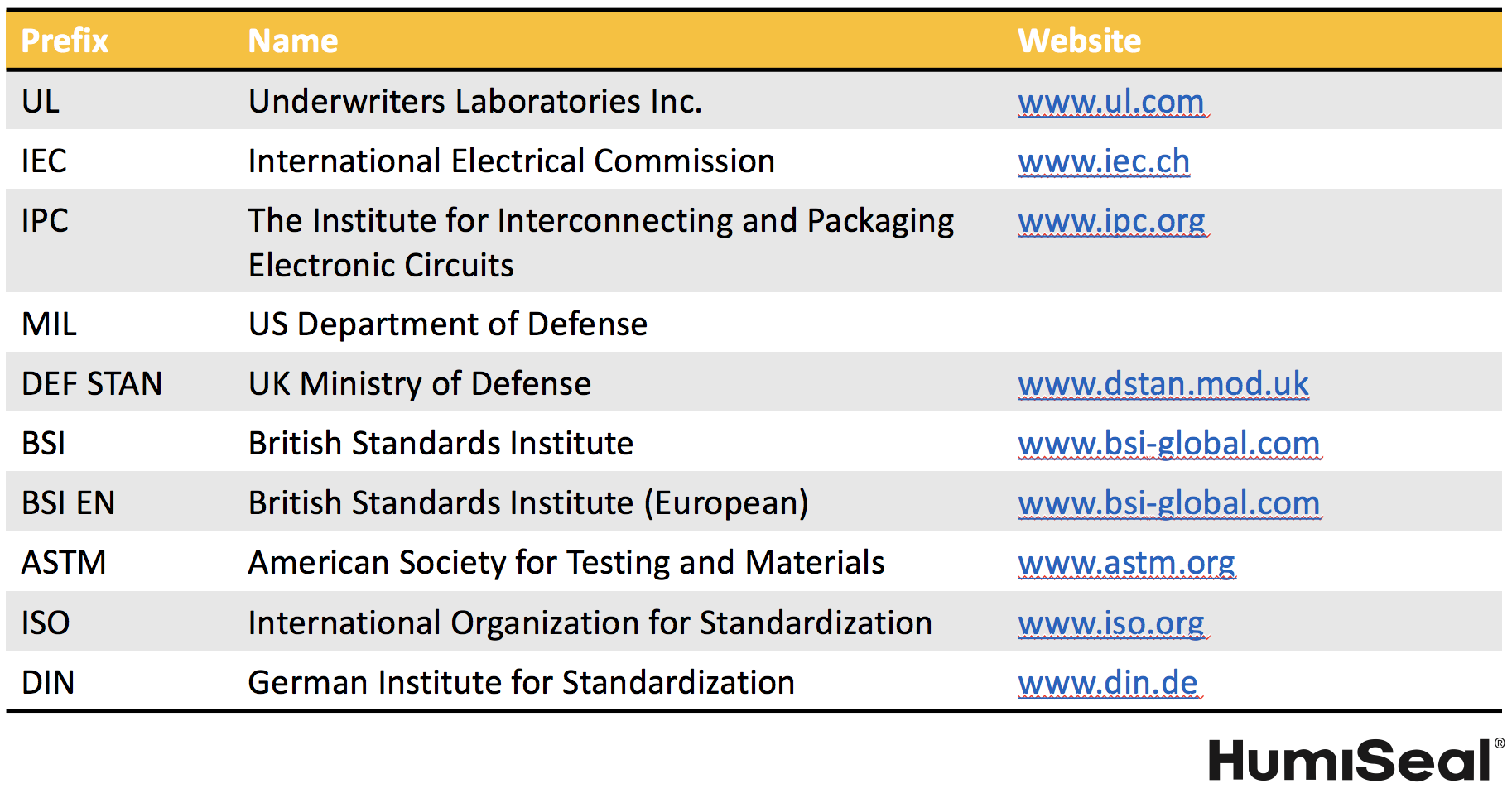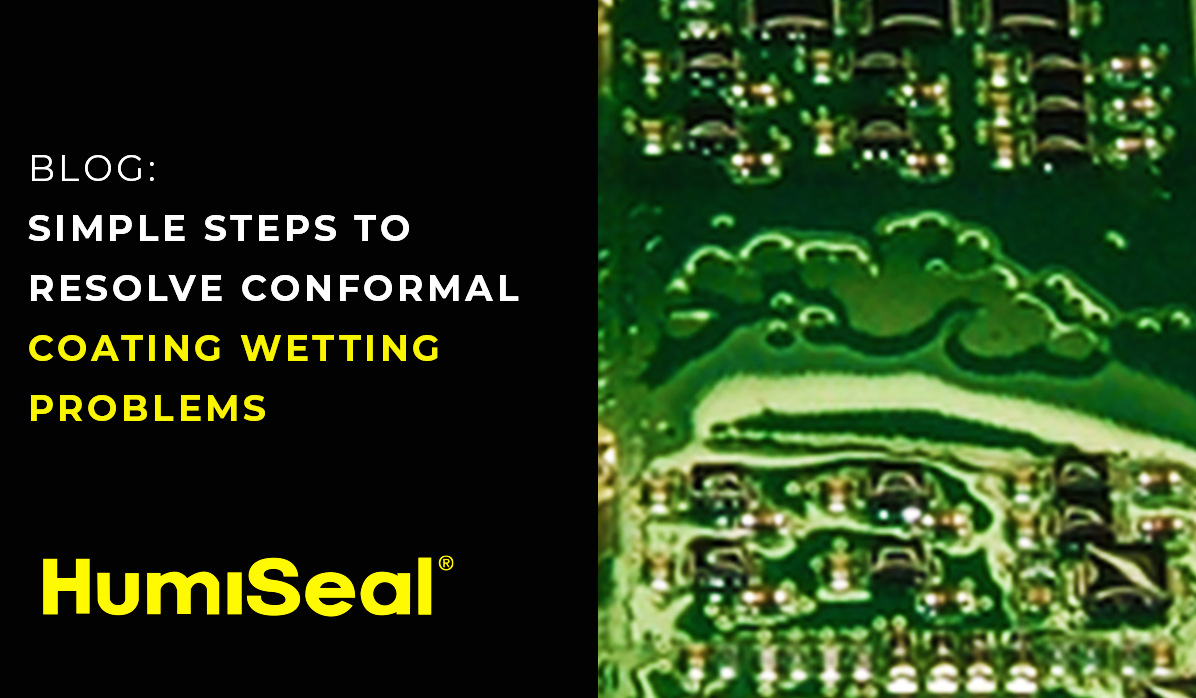HumiSeal development specialists have been designing high-performance, UV-curable conformal coatings for approximately three decades. Compared to legacy solvent-borne and silicone technologies, UV- curable coatings provide some unique properties that can be of great value such as-
- Nearly instantaneous, consistent curing
- Superb moisture and environmental protection
- Little or no VOC content
These coatings also lend themselves well to high-speed and high-volume applications due to manufacturing advantages such as-
- Minimal WIP due to immediate cure capability
- Low material cost due to 100% solids chemistry
- Smaller manufacturing footprint due to much smaller curing equipment
Read More
Topics:
UV Curable (Type AR/UR),
conformal coating,
conformal coating application,
UV Curing
The transition to LED curable conformal coatings is beginning to build momentum, beginning as a slow evolution and developing into a revolution of sorts. The driving forces behind this include:
- Improved processing equipment designs and availability
- Aging or outdated application equipment replacements
- Increasing range of LED curables commercially available or in development
- Rising labor, equipment, and energy costs
If you and your organization are faced with aging equipment and higher costs, there isn't a better time to consider the potential advantages of LED curable conformal coatings!
Read More
Topics:
conformal coating,
Protection for PCB,
UV Curing,
LED curable conformal coating
This blog is the second installment in our two-part series on viscosity (with special consideration on adhesives and coatings).
In our previous viscosity blog, we discussed the properties of viscosity and how viscosity can be affected by temperature, the addition of dilution or thinning agents, and other similar factors.
Read More
Topics:
conformal coating,
viscosity
Counterfeits exist. Our industry is no exception. We’ve pointed out counterfeit conformal coatings on two separate occasions, but it is time to do so again. Unlike most electronics components, damage attributed to counterfeit conformal coatings is often unreported as it can be challenging to tell the difference between counterfeit brands and the original coating. The best way to protect yourself against this is to purchase directly from HumiSeal or one of our authorized channel providers.
Read More
Topics:
conformal coating,
Humiseal Blog,
counterfeit,
Conformal Coating Costs
This is the first in a short series on material viscosity, in which we will review what it is and how to measure it. We will start with the definition of viscosity. Viscosity is the internal friction of moving fluid and a measurement of the resistance of a fluid deformed by shear stress. It is measured in centiPoise. The lower the number, the less viscous the material, as can be seen by this comparison chart: starting with water at 1 cPs and ending with honey at anywhere between 2,000 – 10,000 cPs.
Read More
Topics:
conformal coating,
Coating Application Preparation,
conformal coating application,
viscosity,
Humiseal Blog
Conformal coatings rose to prominence in protection of printed circuit boards (PCBs) about five decades ago. Through their use, early PCB failures due to dust and dirt, liquids, and humidity contamination were greatly reduced or eliminated. This in turn allowed for the longer warranties and improved reliability we see today. Early conformal coatings, many of which are still in use today, were comprised of polymers dissolved in various solvents such as MEK, toluene, or xylene.
An approximate evolution of conformal coating chemistries could be viewed as
- solvent-borne acrylics and polyurethanes
- waterborne acrylics
- synthetic rubber coatings
- UV-curable acrylated urethanes
- LED UV-curable acrylated urethanes
Read More
Topics:
conformal coating,
LED technology,
Eco-friendly,
LED curable conformal coating
Packaging. Not the most complex subject when choosing a conformal coating, but treat the decision too lightly at your peril. There are a surprising number of options available, each suitable to very specific needs and conditions. In this brief presentation we will discuss, from smallest to largest, the various packaging choices available to you, along with the advantages and disadvantages of each.
Read More
Topics:
conformal coating,
Conformal Coating Process,
Conformal Coating Packaging
Take a quick look at the photograph on your right. If you are in the business of PCB manufacturing with conformal coatings, does it frighten or concern you at all? Does the magnified coating appear to truly “conform” to the surfaces evenly? And if not, what effect, if any, might this have on the protection of your PCBs?
First of all, don’t panic. What you see in the photograph is not unusual and is not necessarily a problem. It is important, however, that if you are in the business of applying conformal coatings, you should have a clear understanding of some of the unique challenges they present.
Read More
Topics:
conformal coating,
silicone conformal coating,
Humiseal,
Conformal Coating Process
How do you select and test a conformal coating that is right for your specific application? Or maybe you would like to create your own test specification due to any special characteristics of your device’s operating environment? Or depending on your geographical location, you may also be required to use a different testing specification that is dictated by local authorities.
A widely used method to create an internal specification, is to simply select a conformal coating material that meets an existing specification standard. Such standard could be MIL-I-46058C or IEC-60664. However, you must be careful to ensure that the existing standard that you choose, does indeed meet 100% of your requirements. In such cases, you may have to specify test methods from other existing standards.
Read More
Topics:
conformal coating,
testing procedure
Does your conformal coating not wet properly? Do you struggle with craters, fish-eyes, or film separation? The culprit could be that the surface energy of your PCB is lower than the surface tension of the conformal coating. The above defects are discussed frequently with customers on our technical support line, and any time we receive a technical enquiry regarding poor wetting or loss of adhesion, we ask “what is the surface energy of your substrate?” In this blog, we will explain surface energy, surface tension, and how to quickly troubleshoot defects resulting from low surface energy.
Read More
Topics:
conformal coating,
conformal coating application,
Conformal Coating Troubleshooting

